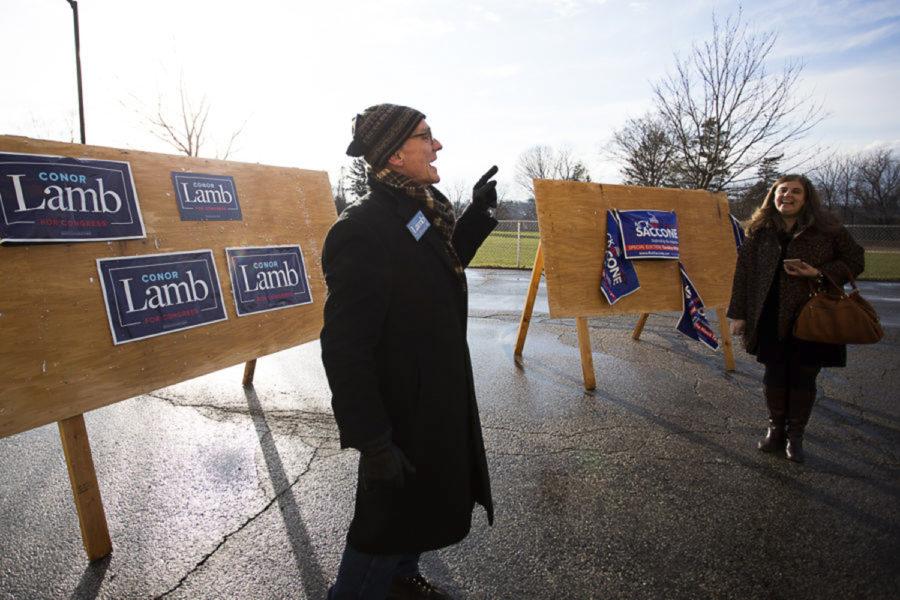If any aspect of the massively hyped special election in Pennsylvania’s 18th Congressional District went unnoticed, it was Libertarian Party candidate Drew Miller.
After a preliminary count of the ballots cast Tuesday, Miller emerged with a paltry 1,379 votes — slightly more than half a percent of all votes cast in the election, which would usually relegate a candidate to total insignificance. But in a race where Democrat Conor Lamb leads Republican Rick Saccone by only a few hundred votes, Miller’s thousand-odd supporters suddenly seemed much more important to the bigger parties in the election’s aftermath.
“I woke up this morning to [what] I would call a healthy amount of hate mail from Republicans,” Miller told The Incline in an interview yesterday. “On Twitter, I can’t even read all of them because they’re people telling me to go to hell, and they’re very upset because they’re blaming me for [Saccone’s loss].”
Miller seemed to enjoy the spite, adding later on Twitter he expected to soon become “the most hated man in America” because of his role in siphoning off votes from the major party candidates. But for all the self-absorption from the candidate who spent much of the campaign petitioning CNN to include his picture in its coverage of the race, he does have a point — Democrats and Republicans shouldn’t take their monopoly on political power for granted.
Evidently, the concept that a local candidate and the local branch of a national political organization should fit that locale’s attitudes isn’t one that comes easily for national party leaders. Saccone’s support for right-to-work laws in the strongly union district was undoubtedly political suicide for the Republican in the special election — but GOP strategist and former Trump aide Jason Miller instead chose to fault the candidate’s “establishment” vibe in the race’s aftermath. In an interview Monday with the Washington Examiner, another blamed Saccone’s “porn stache” for the loss.
Even on the Democratic side, the danger of overgeneralization persists. In an article Tuesday for New York Magazine, writer Jonathan Chait suggested the party’s woes in Congress could be at an end if it simply reruns candidates like Lamb in Republican-leaning districts across the country. And on Monday, Rep. Tim Ryan, D-Ohio, told USA Today he thought Lamb “embodies … what the next iteration of the Democratic Party is going to look like.”
The upset in the 18th District this week could bode any number of outcomes for the midterm elections in 2016. By one measure, more than 100 seats in the House of Representatives are less Republican-leaning than the 18th and are still represented by Republicans.
Along with a benefitting from an unknown Libertarian challenger, Lamb did a good job appealing to the specifics of his district Tuesday.
Come November, If Democrats field candidates who are appropriate for their districts, they can translate dissatisfaction with the Trump administration and GOP-controlled Congress into a Democratic wave. If they don’t, they might face candidates swooping in and picking up significant votes for third parties.


